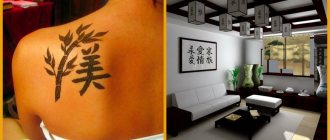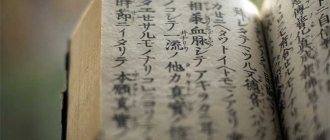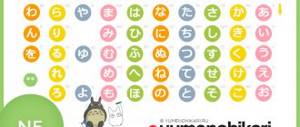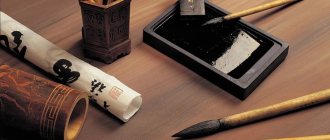Perhaps Japan's most isolated ancient island culture has given rise to a modern society with unique values, traditions and customs. And when you go on a business trip to Japan, you will almost certainly encounter misunderstandings related specifically to intercultural differences. However, Japanese professionals are well trained in dealing with Westerners and will do their best to accommodate your communication style. However, you should still learn about some of the Japanese business culture, business etiquette, negotiations, and business meeting rules.
This article does not aim to describe all the nuances of doing business with Japanese companies . However, it does highlight a few key points that you should definitely consider.
Collectivist values
The Japanese place the interests of the group above the interests of one individual. If in countries where individualism rules (for example, in the United States of America), people tend to draw attention to their personal achievements and skills, then in Japan they are much more focused on the achievements of the team. The Japanese will never say: “I achieved this,” they will say: “My team, my team achieved this.” Therefore, when entering Japanese society, you should not brag too much about your personal awards or successes - this will be somewhat strange for the Japanese.
In companies, all important decisions are made based on the opinions of all group members. Before holding a formal meeting, each team member must express his point of view. Then there is a rather lengthy process called “namawashi” - this is preparation for the final decision-making, and it consists in forming a single opinion, taking into account the points of view of all participants in the meeting. Directly at the meeting itself, no one expresses any ideas or objections, since the decision, as a rule, has already been made. It is announced, and then there is a discussion of further actions taking into account the decision made.
If we are talking about any kind of rivalry between several companies (competition, tender, etc.), then for the Japanese the most important thing is not even victory, but that they act and make decisions together.
Table etiquette in Japan
When sitting down at a Japanese table, according to national traditions, you should clean your face and hands with a damp hot towel - “oshibori”. Regular restaurants do not always require this ritual. In any case, you can’t start eating right away. You should express your gratitude for the opportunity to eat by saying the phrase “Itadakimasu/Itadakimas”, which replaces the words “Bon appetit!” Bowing with folded palms is also encouraged.
It is customary to sit at a Japanese kotatsu table in the seiza position, with your legs tucked under you and your back straight. Japanese men, in the presence of family and friends, are accustomed to sitting in the “agura” (“Turkish”) position; foreign women are allowed to move their legs slightly to the side. But stretching your legs is a taboo that even guests from abroad should not break. Touching with the foot is considered a terrible insult.
When trying Japanese cuisine, you should follow a certain sequence and give preference to rice first, and then soup. Only after this can you touch other treats.
When eating, locals use special chopsticks (hashi) and a stand intended for them (hashioki). It is important to learn how to hold hashi in your hands correctly. How skillfully a person uses these cutlery indicates the degree of his culture. Under no circumstances should you stick hashi into a plate of rice. Such a gesture is like death. If you need to interrupt lunch, the chopsticks must be placed on a special stand, connecting the sharp ends and pointing them to the left. If there is no hasioka, the chopsticks are placed on the table surface and leaned against the cup.
Traditionally, food is served in 25-centimeter chopsticks. Larger hashi (35 cm) is usually used during cooking (usually they are used to beat eggs and mix sauces). In restaurants, it is customary to use warisabi, disposable chopsticks served in a special case. The sticks fastened together must be broken and rubbed against each other to prevent the possibility of a splinter getting in.
The Japanese are very hospitable and will consider eating every last grain of rice as gratitude. But you shouldn’t empty a glass of alcohol or the national drink sake right away. In Japan, it is not customary to leave a glass empty, so it is worth remembering this during a feast. When filling guests' glasses, pour the drink into your own glass last. Japanese etiquette dictates.
.
Contrary to the widespread rule not to slurp while eating, in Japan such behavior is encouraged. The Japanese consider this a sign of respect for the hosts of the evening, since the sounds made by the guests at the table are approval for the deliciously prepared treats.
Table etiquette in Japan
requires compliance with some more cultural norms. For example, it is forbidden to tear the plate off the table and bring it to your face, trying to put food into your mouth as soon as possible using chopsticks. It is also unacceptable to point chopsticks at someone during a table conversation.
During a meal, it is prohibited to raise topics that may be unpleasant to people sitting at the table, as well as to blow your nose and burp. Such things at the table are considered the height of indecency. National features of Japanese etiquette
do not involve the use of scarves. Therefore, if you want to blow your nose, it is advisable to leave the table and go to the restroom. But sniffling at the table is not forbidden. So even during business meetings, no one will pay attention to such a feature of the interlocutor.
You should get up from the table with the phrase “Gochisosama/Gochisosama”. This is an expression of gratitude to the one who organized the dinner (cook, owner of the house). At the same time, it is necessary to say the treasured phrase even if the person for whom it is intended does not hear it. It is not customary to tip waiters in Japan.
Lifetime employment
One of the most characteristic phenomena in Japan is the lifetime employment system. It is not customary to change jobs there often. The Japanese come to a certain company after graduating from university and work there until they retire. Many large organizations select promising students and, as it were, “prepare” them for future work. They can help them with various courses and training in their specialty. And then they are accepted into the company, within which these people begin to build their careers.
If it is necessary to select a specialist who will occupy a high position (for example, the position of department manager has become vacant), then, as a rule, the choice is made from those employees who are already working in this organization in lower positions. We often come across vacancies of the type “A large organization requires a general manager, financial director, and so on.” For the Japanese, such a vacancy is nonsense. They will think: “Why hire a person who has never worked in this company before for such a high position, if you can fill it with an employee who was waiting for a promotion and deserved it?”
Communication between boss and subordinate
In Japanese organizations it is not customary to give orders the way we do. If you look from the outside at how the manager and his subordinate communicate with each other, you might think that these are not instructions, but only advice and recommendations. In fact, the Japanese do not need to set strict conditions and speak with all the “sternness of a boss” for them to understand what is wanted from them. Just a hint in the form of a recommendation is enough - and they will complete the task accurately and on time.
This is based not only on the fact that the Japanese are efficient and diligent. They know that they simply cannot fail to complete the task, since everyone is subordinate to the existing hierarchy, which mainly depends on length of service in a given company. Even a one year difference makes a huge difference.
Going to visit...
When entering a Japanese home, it is customary to take off your shoes. This is nothing special for Russians. But the requirement to take off your shoes before entering the office may seem strange. Yes Yes! Japanese etiquette
requires maintaining order and cleanliness, so it is not surprising that not only in the house, but also in the office they offer to change into slippers if you want to go inside. In rooms covered with tatami (special mats traditionally made of igusa reed and stuffed with rice straw), even wearing slippers is prohibited.
Before entering the toilet, it is also customary to take off your slippers and put on others specifically designed for visiting the restroom. And after leaving, change into the first shoes. At first, following such traditions may seem like an impossible task for tourists, since you can easily leave wearing different slippers or not wearing them at all. Forgetfulness and inattention in this area quite often cause ridicule from others. Try not to turn into a buffoon, because the Japanese can remember this “mistake” for a long time.
Contrary to common sense, gifts, as Japanese etiquette
, the first to be presented are not the guests, but the owners of the house. The most common souvenir in the Land of the Rising Sun are Japanese chopsticks. A person of high rank (such as a boss) must give a gift worth at least 30,000 yen (about $300). Persons from the same social class or occupying the same rank are required to exchange gifts, the cost of which starts at 20,000 yen (approximately $200). When choosing a gift for loved ones (sisters, brothers), it is important to spend at least 10,000 yen (about $100). If the person accepting the gift finds out that the purchase cost the giver less money, he will be considered greedy. But a gift that is too expensive is also inappropriate. This is not considered an act of generosity, but a desire to achieve something. When giving an expensive gift, think about the fact that you might put the recipient in an awkward position.
Greetings and address
From time immemorial, the Japanese bowed to each other at business meetings, this was the greeting. Nowadays, most often the bow is used only when two Japanese meet. If a Japanese and a European/American are participating in a meeting, then they use the traditional handshake for the latter.
If you want to address a Japanese person, showing all your respect and respect, then add the ending “san” to the end of his last name, which in our interpretation means “master.”
Japanese speech etiquette
National etiquette of Japan
- this is a whole science. It is important to be able not only to bow correctly, but also to address your interlocutor.
In Japan, it is customary to add special suffixes to the name, surname or position of the interlocutor - “keisho” and “nihongo”. It is impossible to do without them. This is the height of disrespect. Exceptions to the rule are schoolchildren, students, and close friends.
When addressing a person of the same or higher status, as well as when talking with a stranger, it is necessary to add “san” to the surname. This is equivalent to the Russian "You".
It is customary to use “kun” during an informal conversation with friends/colleagues. “kun” is used when one wishes to address someone younger in age or rank.
People of equal social status who know each other well can use the nominal suffix “chan”. This is an affectionate form of addressing a person, which is widely used in relation to young children.
The suffix “sama” (the Russian equivalent of the word “master”) expresses deep respect. It often appears in business letters.
It is customary to use “senpai” in relation to elders: on the part of students - to a teacher, who recently got a job at a person’s company - to a more experienced one. The suffix "kohai" has the opposite meaning.
"Sensei" can be heard when addressing individuals who are respected in society. The suffix is often added when talking with writers, scientists, politicians, and doctors.
By observing Japanese speech etiquette , you demonstrate a high degree of culture and express your gratitude to the citizens of this country.
"Cult" of the business card
The Japanese treat business cards in a special way. For them, business cards are a kind of identification document, a person’s second face. When exchanging business cards with a Japanese person, never give him a business card of a “non-marketable” type - wrinkled, torn or dirty. The Japanese will consider this as gross disrespect towards him. If you sit down at the negotiating table with a Japanese person after exchanging business cards, then place it on the edge of the table. A well-mannered Japanese will do the same. You should not give the business card handed to you to your assistant or carelessly put it in your pocket. This is also disdain for your interlocutor.
Ideally, your business card should contain information about you in both English and Japanese. It is acceptable to exchange only an English-language business card with a Japanese person, but this does not imply the same attention and respect for the partner as a business card in Japanese.
Negotiation
Business negotiations in Japan take place in the form of friendly conversation. The Japanese will be friendly and polite, and will often nod approvingly in response to your proposals, but this does not mean at all that they have already agreed to a deal with you. This is just a manifestation of Japanese politeness.
When communicating in business, the Japanese are not prone to categorical and harsh refusals. It is almost impossible to hear even just the word “no” from a Japanese person. If the Japanese is not satisfied with any of the terms of the transaction or does not want to carry out it for other reasons, then he will say something vague like “we will give an answer a little later” or “this matter requires some thought.” But if the Japanese are satisfied with everything, then he will express his consent immediately. Also, the Japanese extremely rarely use the prefix “not-” in words and phrases. During a business conversation, try to utter negative words as little as possible.
When negotiating, it is worth considering the differences between the cultures of Japan and your country. Despite all the friendliness of the Japanese, try to avoid jokes during a conversation. The Japanese may misunderstand them and you will find yourself in an awkward position. The same applies to linguistic expressions that are inherent in a particular culture. Your figurative phrases “a piece of cake”, “you’re killing me”, “pounding water”, etc. will be very inappropriate, as the Japanese will take it literally.
Returning to the topic of collectivism in Japan, express respect not so much for the personality of your interlocutor, but for the company he represents. It will be much more valuable to him.
The Japanese are always true to their word. If your interlocutor agreed to the deal verbally, you don’t need to immediately push him a bunch of papers to sign. If the Japanese made a deal orally, then rest assured that he will do it in writing, but only when he himself is ready for it.
Personalization of relationships
The Japanese strive to build business relationships on a personal basis and during negotiations, when one can ask the interlocutor many questions that are not related to the essence of the matter, the Japanese try to establish personal contact with the partner and thereby secure his consent to further work together. The same purpose is served by organizing an entertainment program for partners - the Japanese love to entertain their guests and know how to do it well, so in no case should you shy away from the offer to walk around various interesting places in the city before negotiations.









